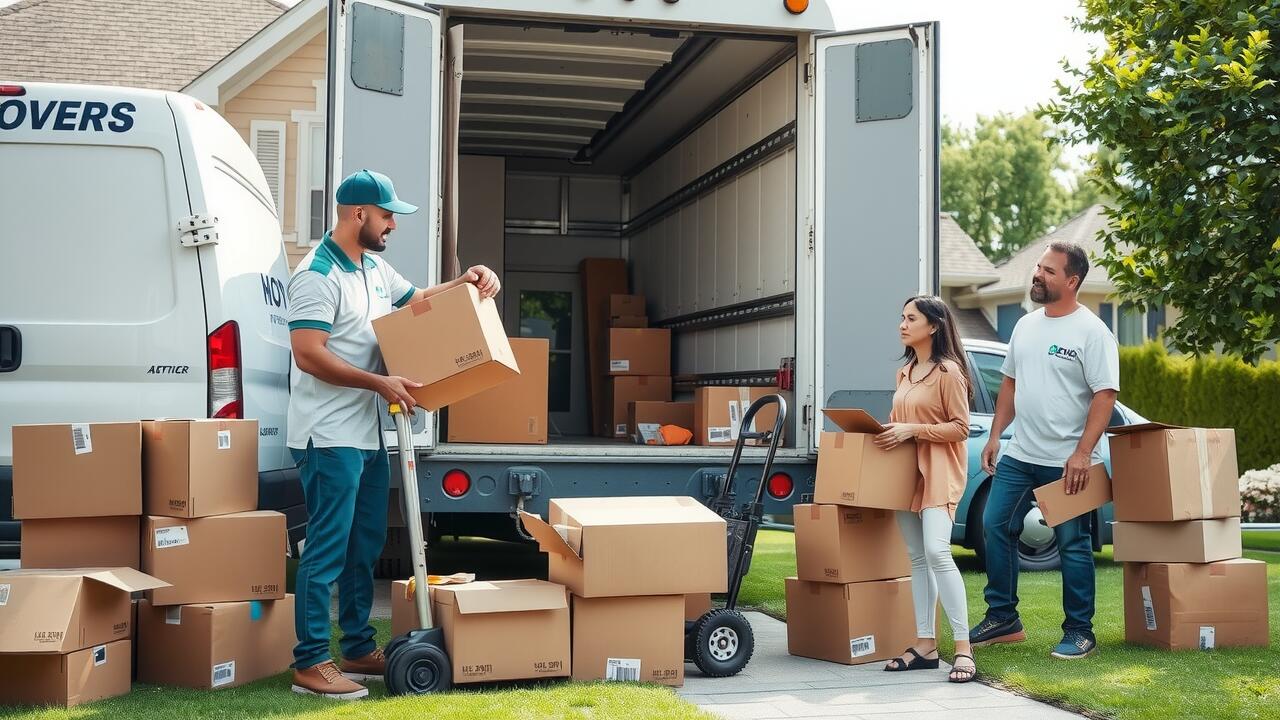
Table Of Contents
Cost Factors for Long-Distance Moves
When planning a long-distance move, several cost factors come into play that can significantly impact your budget. The distance you need to travel is one of the primary determinants of the total moving cost. In addition to mileage, other expenses such as fuel prices, tolls, and potential accommodation costs should be considered. The size and weight of your belongings also influence the price, with larger and heavier items typically resulting in higher fees. Each moving company may have its own pricing structure, so obtaining estimates from different providers is essential.
Local and Long Distance Moving in Federal Way, Washington, can vary in cost due to regional factors. The demand for moving services, local labor rates, and seasonal fluctuations can all affect pricing. Additional services like packing, loading, or using storage facilities may incur extra charges, which should be factored into your overall budget. Understanding these various elements allows for a more accurate financial plan and ensures that unexpected costs do not arise as the moving date approaches.
Understanding Fees and Estimates
When planning a long-distance move, understanding the various fees and obtaining accurate estimates is crucial. Companies typically base their prices on several factors including the distance of the move, the volume of items being transported, and any additional services such as packing or storage. It can be beneficial to request quotes from multiple moving companies to compare prices and ensure a transparent breakdown of services provided. Local and Long Distance Moving in Federal Way, Washington, may offer different pricing structures based on regional demand, so it's essential to ask about any area-specific costs.
When seeking estimates, it's important to consider both binding and non-binding estimates. A binding estimate guarantees the quoted price, whereas a non-binding estimate may vary based on actual weight or services performed. Always clarify these terms with your chosen moving company to avoid unforeseen charges. Additionally, some companies may charge extra for fuel surcharges, long carries, or specialized handling of delicate items. Knowing these fees in advance can help facilitate a smoother moving experience.
Packing for a Long-Distance Move
Packing for a long-distance move requires careful planning and organization. It is essential to gather quality packing materials, including sturdy boxes, bubble wrap, and packing tape. Before starting, sort through belongings to determine what is truly necessary for the new home. This process can help reduce the overall volume, saving space and potentially lowering moving costs. Properly labeling boxes will facilitate the unpacking process, ensuring that items are easily accessible upon arrival.
Local and long-distance moving in Federal Way, Washington, often involves specific considerations. Fragile items require extra attention and protective packaging to prevent damage during transit. It is advisable to use specific techniques for certain items, such as disassembling furniture and using blankets for protection. Establishing a packing timeline can help avoid last-minute rushes and scattered belongings, creating a smoother transition to the new destination.
Best Practices for Secure Packing
When preparing for a long-distance move, secure packing is essential to protect your belongings. Start by gathering high-quality packing materials, including sturdy boxes, bubble wrap, packing peanuts, and strong tape. Label each box with its contents and designated room to streamline the unpacking process. For fragile items, such as glassware or electronics, take extra care by wrapping them thoroughly in bubble wrap and marking these boxes as fragile. This attention to detail minimizes the risk of damage during transport.
Additionally, consider the weight distribution within each box. Heavier items should be placed at the bottom to provide a stable foundation, while lighter items can go on top. If you're engaging in local and long distance moving in Federal Way, Washington, consulting with professional movers can enhance your packing strategy. They often have insights and tips that make the process smoother, ensuring your belongings are well-protected throughout the journey.
Timeline for a Successful Move
Creating a detailed timeline is essential for a successful long-distance move. Start by outlining key milestones, such as booking a moving company, packing dates, and the date of the move itself. Allocate time for sorting through belongings and deciding what to keep, sell, or donate. This early planning helps alleviate stress as the moving day approaches. Establishing a timeline allows each task to be broken down into manageable steps, ensuring nothing is overlooked.
For those considering Local and Long Distance Moving in Federal Way, Washington, specifying deadlines for each task can enhance efficiency. Begin by determining your moving date, as this will affect other aspects, such as when to start packing and when to request final utility bills. Aim to have everything packed at least a few days before the move. This practice gives room for unexpected delays and ensures that transition day is as smooth as possible.
Creating a Moving Schedule
Planning a moving schedule is essential for a smooth transition during a long-distance move. Start by determining your moving date and work backward to allocate time for packing, hiring movers, and other necessary tasks. Setting specific deadlines for each phase helps maintain organization. Factor in potential complications, such as travel time and the availability of your new home. Staying proactive will reduce stress and ensure everything is in place on moving day.
In Federal Way, Washington, local and long-distance moving requires careful coordination to avoid last-minute issues. Make a checklist that outlines all critical steps, including notifying utility companies, changing your address, and arranging for essential services at your new location. Prioritizing these tasks will help you stay on track. Regularly reviewing and adjusting your schedule as needed will keep you prepared and allow for unexpected changes.
FAQS
What is considered a long-distance move?
A long-distance move typically refers to relocating your belongings over a distance of more than 100 miles or across state lines.
How do moving companies determine the cost of a long-distance move?
Moving companies calculate the cost of a long-distance move based on various factors including distance, weight of the items being moved, and any additional services requested, such as packing or storage.
Are there any hidden fees associated with long-distance moves?
Yes, some moving companies may charge hidden fees, such as fuel surcharges, tolls, or fees for handling heavy or large items. It's important to read the estimate carefully and ask for clarification on all potential charges.
What are the best practices for packing when planning a long-distance move?
Best practices for packing include using sturdy boxes, properly labeling each box, packing fragile items securely, and creating an inventory list to keep track of all your belongings.
How can I create an effective timeline for my long-distance move?
To create an effective timeline, start by selecting your moving date, then break down tasks into manageable steps, such as hiring movers, packing, and notifying utility companies. It's helpful to create a schedule that includes deadlines for each task leading up to the move.
